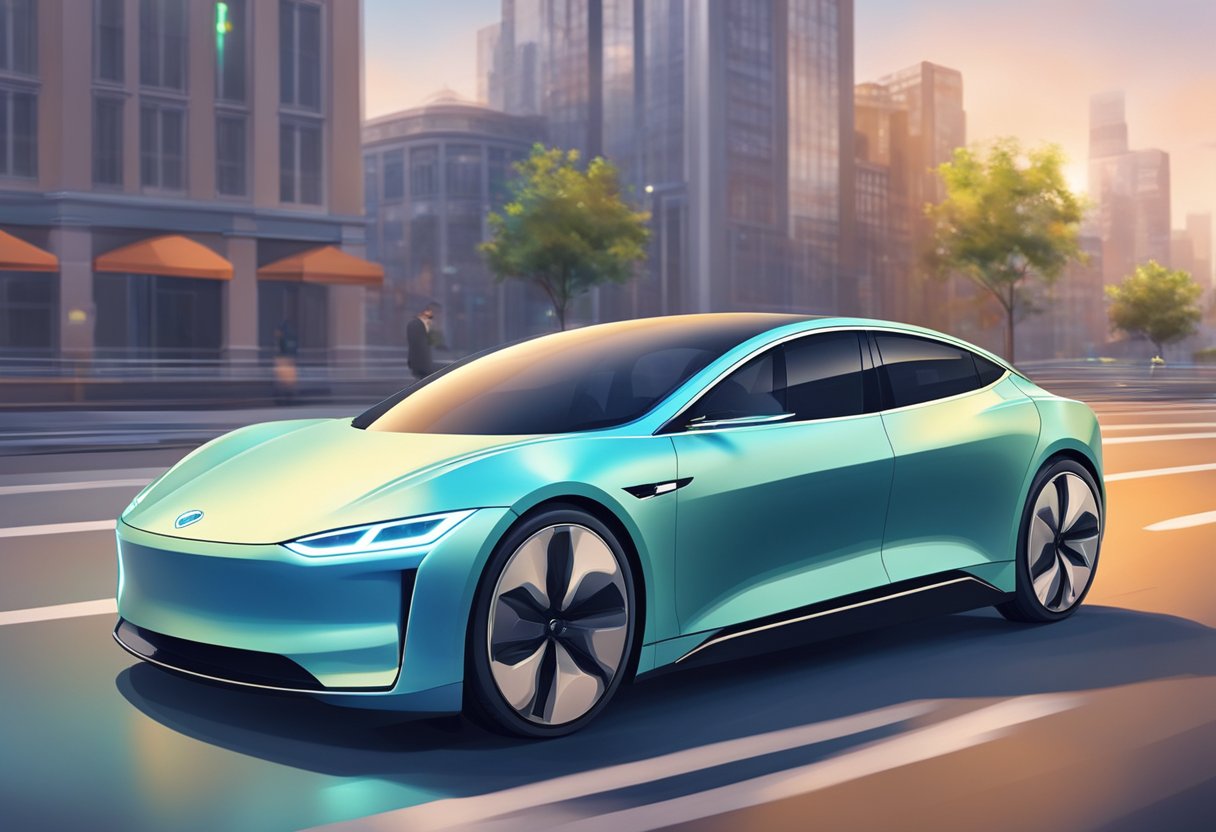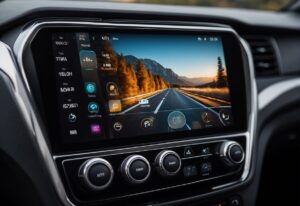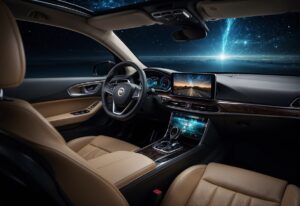Artificial intelligence (AI) has revolutionized many industries, and the automotive sector is no exception. Electric vehicles (EVs) are becoming increasingly popular due to concerns over climate change and the need for sustainable transportation. However, one of the biggest challenges facing EVs is their limited range and the need for frequent recharging. This is where AI comes in, as it has the potential to improve the efficiency of EVs and extend their range.
AI can be used to optimize various aspects of EVs, such as battery management, powertrain efficiency, and vehicle-to-grid (V2G) technology. By analyzing data from sensors and other sources, AI algorithms can predict energy demand and adjust the vehicle’s systems accordingly. For example, AI can optimize the charging and discharging of the battery based on the driver’s habits and the vehicle’s usage patterns. This can result in significant improvements in range and efficiency, as well as reduced charging times.
In addition to optimizing individual vehicles, AI can also be used to improve the overall efficiency of EV fleets. By analyzing data from multiple vehicles and their usage patterns, AI can identify opportunities for V2G technology, where EVs can discharge excess energy back into the grid during peak demand periods. This can help to balance the grid and reduce the need for fossil fuel power plants. Overall, AI has the potential to revolutionize the EV industry and make sustainable transportation more accessible and efficient.
Fundamentals of AI in EVs
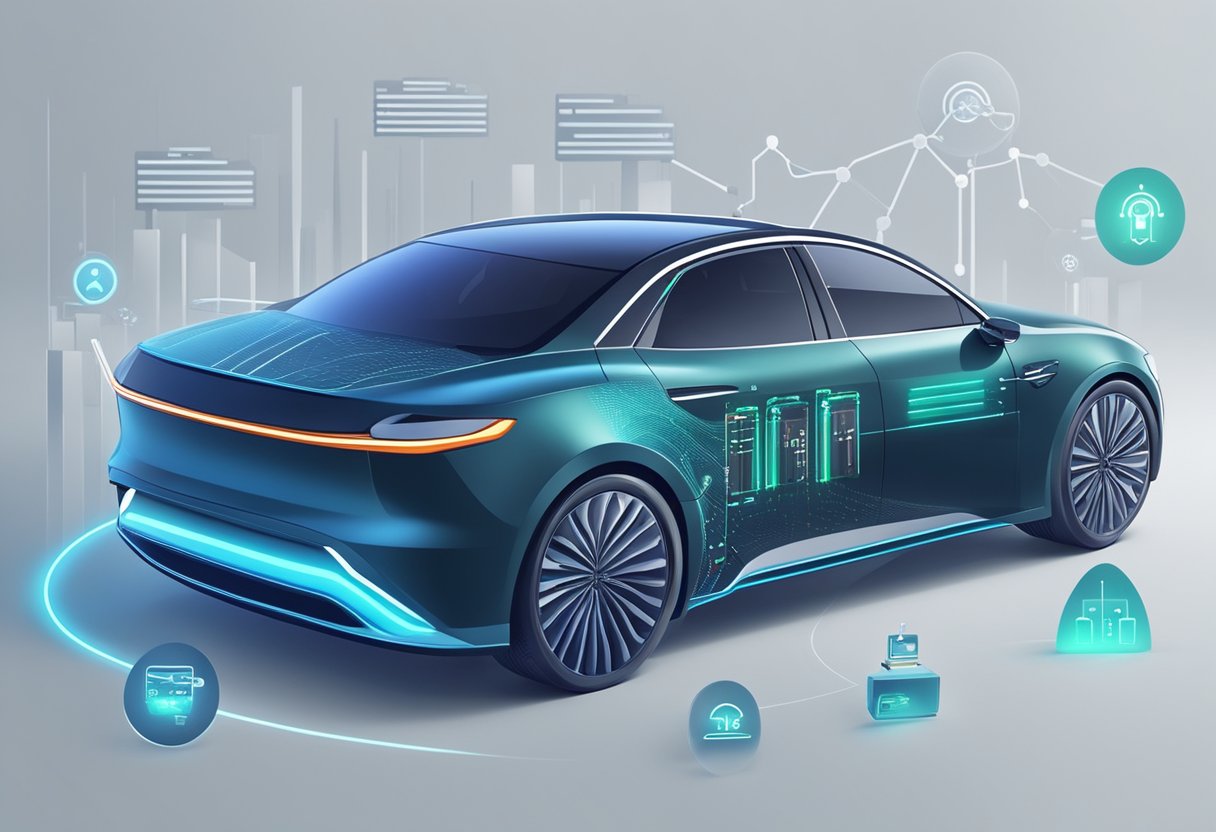
Understanding AI and Machine Learning
Artificial Intelligence (AI) is a technology that enables machines to perform tasks that typically require human intelligence, such as visual perception, speech recognition, and decision-making. Machine Learning (ML) is a subset of AI that involves training algorithms to learn patterns and make predictions based on data.
In the context of Electric Vehicles (EVs), AI and ML can be used to optimize various aspects of the vehicle, such as battery management, energy consumption, and driving behavior. By analyzing data from sensors, cameras, and other sources, AI algorithms can identify patterns and make predictions about how the vehicle should operate in different situations.
Role of AI in Electric Vehicles
One of the key roles of AI in EVs is to improve efficiency. By optimizing the use of energy, AI can help extend the range of the vehicle and reduce the need for frequent charging. For example, AI algorithms can analyze driving patterns and adjust the energy usage of the vehicle accordingly.
Another important role of AI in EVs is to enhance safety. By analyzing data from sensors and cameras, AI algorithms can detect potential hazards and alert the driver or take corrective action. For example, AI can detect when the vehicle is drifting out of its lane and apply corrective steering to prevent an accident.
Overall, AI and ML have the potential to revolutionize the way we design and operate Electric Vehicles. By leveraging the power of data and algorithms, we can create more efficient, safer, and environmentally friendly vehicles that meet the needs of today’s consumers.
AI-Driven Energy Management
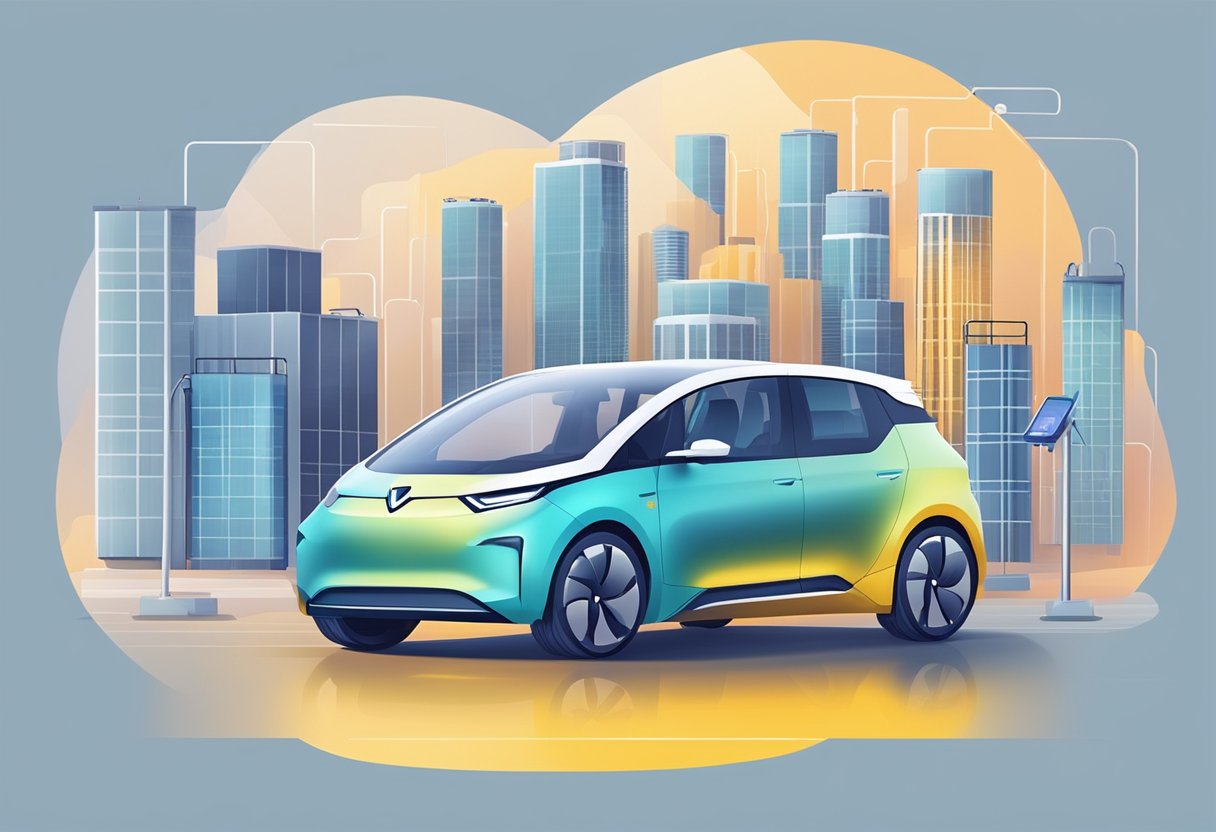
Artificial intelligence (AI) is revolutionizing the electric vehicle (EV) industry by improving the efficiency of energy management systems. AI algorithms are used to optimize battery performance, smart charging systems, and vehicle-to-grid integration, resulting in reduced energy consumption and increased savings for EV owners.
Optimizing Battery Performance
One of the most critical components of an EV is its battery, which is responsible for storing and delivering energy to the vehicle’s motor. AI algorithms can optimize battery performance by analyzing data from the battery management system (BMS) and adjusting its charging and discharging patterns. By doing so, AI can extend the battery’s lifespan and improve its overall efficiency.
Smart Charging Systems
AI can also optimize charging systems by analyzing data from the smart grid and charging infrastructure. Smart charging systems can adjust the charging rate based on the availability of renewable energy sources, such as solar and wind power. AI algorithms can also predict the optimal charging time for an EV based on its usage pattern, ensuring that the battery is fully charged when needed.
Vehicle-to-Grid Integration
Vehicle-to-grid (V2G) integration is a technology that allows EVs to store and deliver energy to the grid when not in use. AI can optimize V2G integration by analyzing data from charging and discharging patterns, as well as energy demand and supply on the grid. By doing so, AI can maximize the benefits of V2G integration, including reducing energy costs and carbon emissions.
In conclusion, AI-driven energy management is transforming the EV industry by improving battery performance, optimizing charging systems, and maximizing the benefits of V2G integration. As AI technology continues to evolve, it is expected to play an increasingly important role in the future of sustainable transportation.
Challenges and Innovations
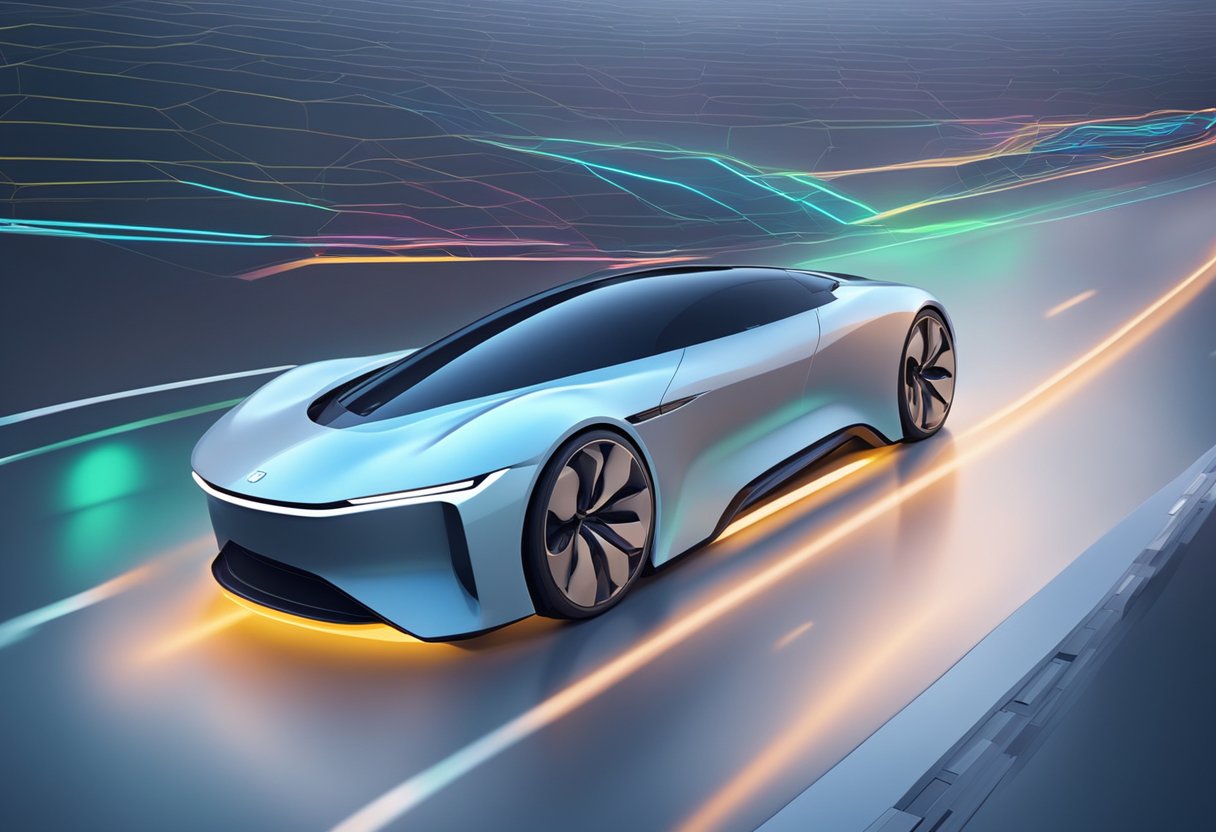
Addressing EV Range Anxiety
One of the biggest challenges for electric vehicles (EVs) is range anxiety. Drivers are often concerned about running out of battery power before reaching their destination. Artificial intelligence (AI) can help address this issue by predicting the range of the vehicle based on driving habits and environmental factors. By analyzing data on driving patterns and road conditions, AI can provide accurate predictions of range, helping drivers plan their trips more effectively.
AI in EV Manufacturing
AI is also being used in the manufacturing of EVs to improve efficiency and reduce costs. By analyzing data on production processes, AI can identify areas where improvements can be made, such as reducing waste and optimizing supply chains. This can help manufacturers produce EVs more quickly and at a lower cost, making them more accessible to consumers.
Sustainability and Climate Impact
Another important consideration for EVs is their impact on the environment. While EVs produce fewer emissions than traditional vehicles, the production of batteries and other components can have a significant environmental impact. AI can help address this issue by optimizing the production process to reduce waste and minimize the use of non-renewable resources. By using sustainable materials and reducing energy consumption, manufacturers can produce EVs that are more environmentally friendly.
In conclusion, AI is playing an important role in improving the efficiency and sustainability of electric vehicles. By addressing challenges such as range anxiety and optimizing manufacturing processes, AI is helping to make EVs more accessible and environmentally friendly.
AI Technologies in Electric Mobility
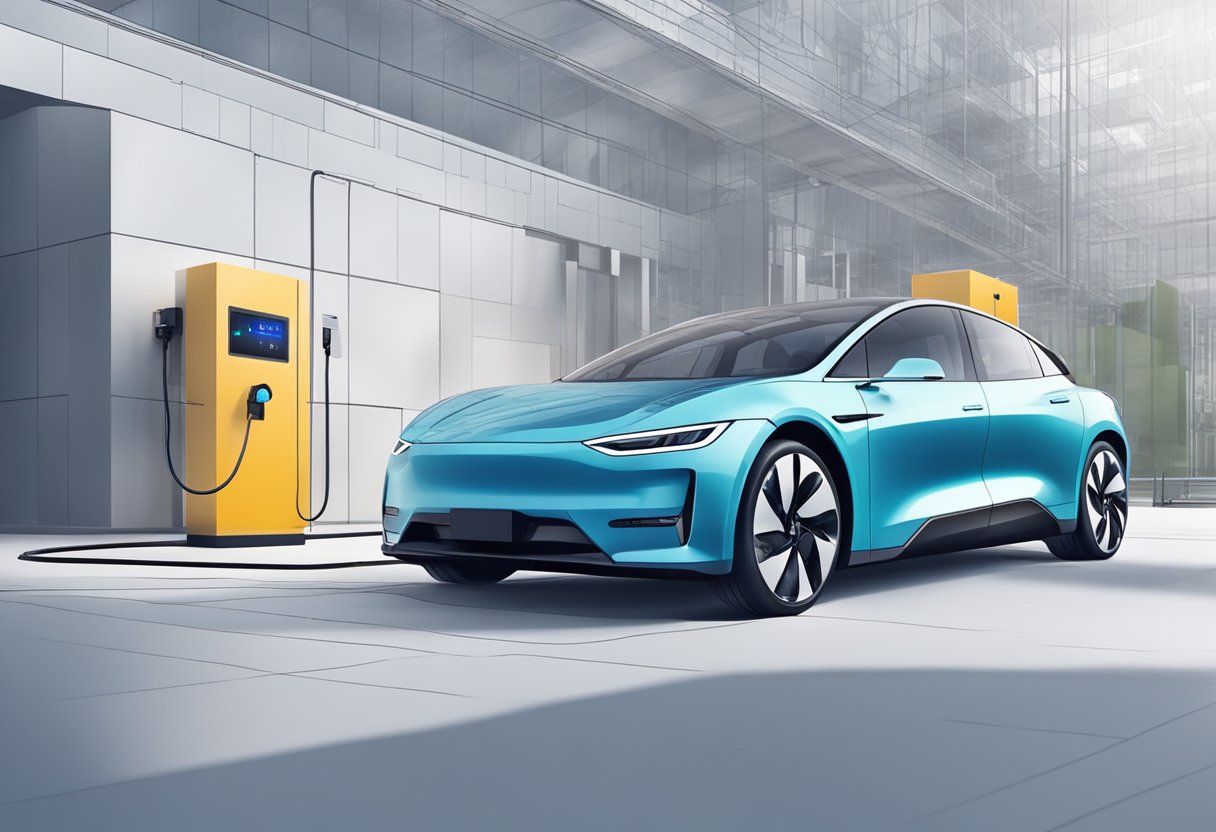
Artificial Intelligence (AI) has become an integral part of the electric vehicle industry. The use of AI in electric mobility has enabled the development of more efficient and reliable electric vehicles. In this section, we will discuss some of the AI technologies used in electric mobility.
Reinforcement Learning Applications
Reinforcement Learning (RL) is a type of machine learning that involves training an agent to make decisions based on rewards and punishments. RL has been used in electric mobility to optimize energy management systems. RL algorithms can learn to optimize the energy consumption of electric vehicles by taking into account factors such as traffic conditions, battery state of charge, and weather conditions. This can lead to significant improvements in the efficiency of electric vehicles.
Neural Networks and Predictive Maintenance
Neural Networks (NN) are a type of machine learning algorithm that can learn to recognize patterns in data. NNs have been used in electric mobility for predictive maintenance. Predictive maintenance involves using data from sensors and other sources to predict when maintenance is needed. NNs can learn to recognize patterns in the data and predict when maintenance is needed, which can reduce downtime and improve the reliability of electric vehicles.
Fuzzy Logic for Hybrid Energy Systems
Fuzzy Logic (FL) is a type of mathematical logic that can handle uncertainty and imprecision. FL has been used in electric mobility for hybrid energy systems. Hybrid energy systems combine different energy sources, such as batteries and fuel cells, to improve the efficiency and range of electric vehicles. FL can be used to optimize the operation of hybrid energy systems by taking into account factors such as energy demand, energy storage capacity, and energy conversion efficiency.
In conclusion, AI technologies such as RL, NN, and FL have played a significant role in improving the efficiency and reliability of electric vehicles. The use of AI in electric mobility is expected to continue to grow in the coming years, leading to further improvements in the performance of electric vehicles.
The Future of AI in Electric Vehicles
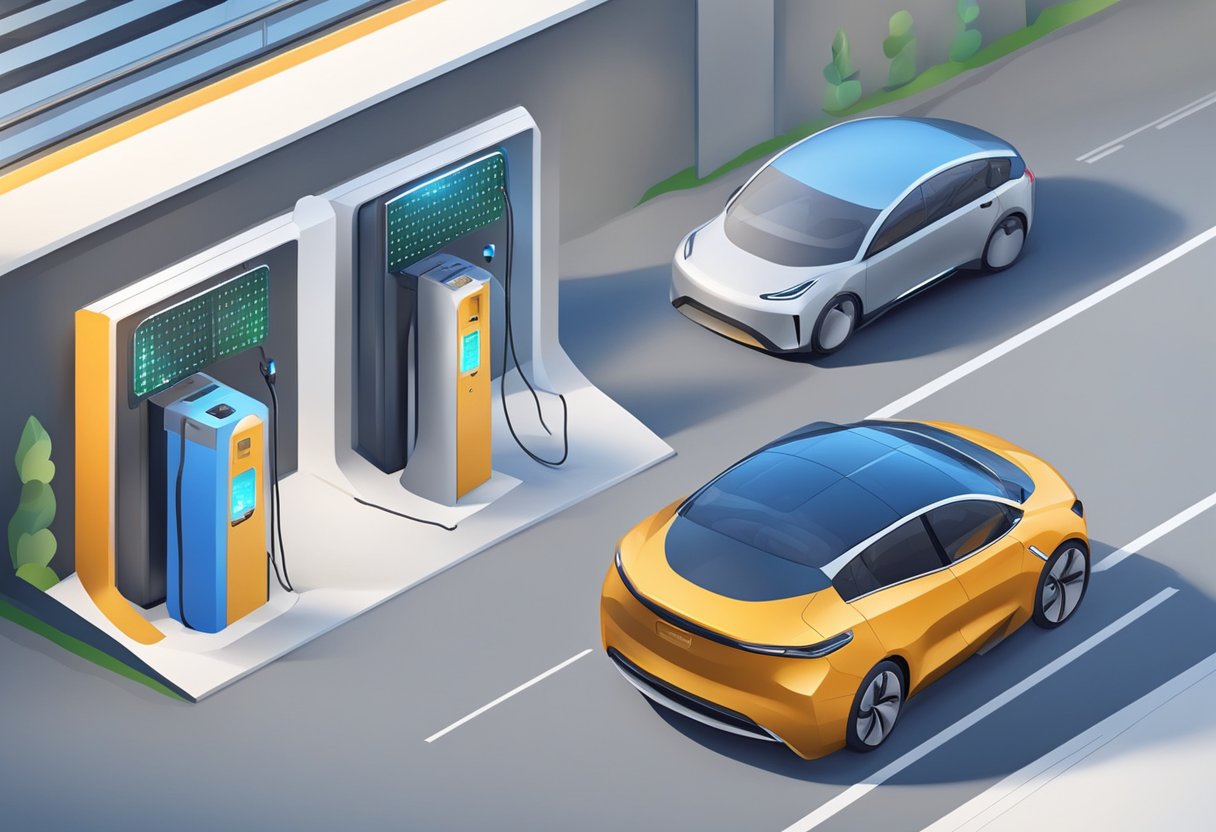
As the world moves towards a more sustainable future, electric vehicles (EVs) have become increasingly popular. With the help of artificial intelligence (AI), EVs are becoming more efficient and effective than ever before. Here are some of the ways AI is revolutionizing the EV industry.
Advancements in Autonomous EVs
One of the most exciting applications of AI in the EV industry is the development of autonomous driving technology. With AI-powered sensors and algorithms, autonomous EVs can navigate roads and traffic without human intervention, making them safer and more efficient. Additionally, autonomous EVs can optimize their energy usage by adjusting their speed and route to conserve energy.
Integrating IoT with EV Ecosystem
The Internet of Things (IoT) is a network of connected devices that can communicate with each other and with the internet. By integrating IoT with the EV ecosystem, AI can gather data from various sources, such as weather forecasts, traffic patterns, and charging station availability, to optimize the EV’s energy usage. For example, an AI-powered EV could adjust its charging schedule based on the availability of renewable energy sources, such as solar or wind power.
Energy Conservation Strategies
AI can also help EVs conserve energy by analyzing driving patterns and adjusting the vehicle’s energy usage accordingly. For example, AI can optimize the EV’s acceleration and braking patterns to reduce energy consumption. Additionally, AI can monitor the vehicle’s battery usage and adjust the HVAC system to minimize energy usage.
Overall, AI is set to revolutionize the EV industry, making EVs more efficient, reliable, and cost-effective. With advancements in autonomous driving technology, IoT integration, and energy conservation strategies, the future of AI in the EV industry is bright.

